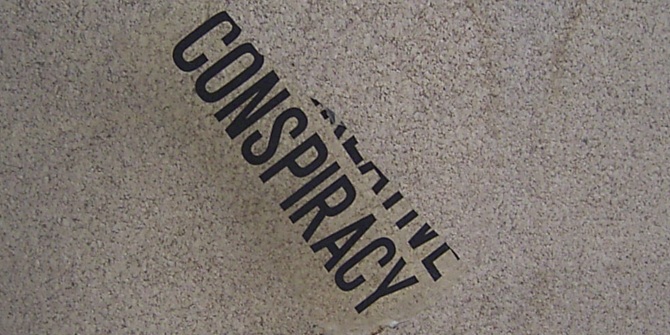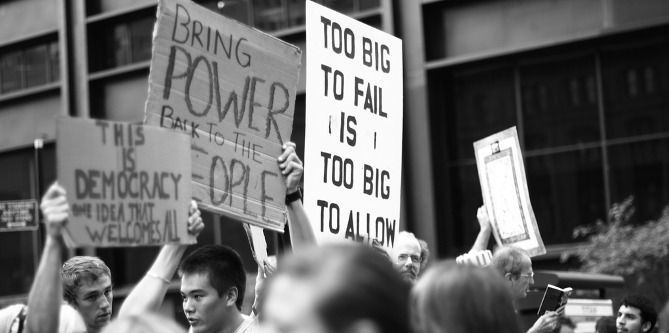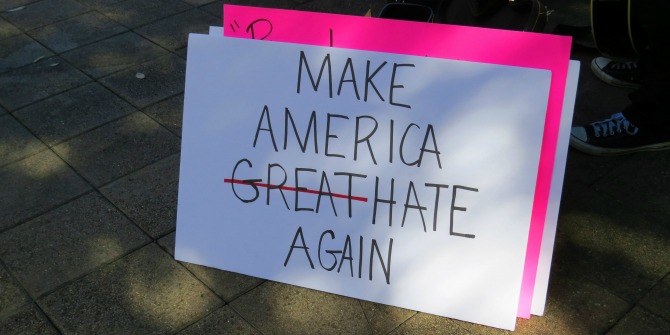 At the end of September, Secretary of Health and Human Services, Tom Price, resigned following controversy over his use of private and government jets at taxpayer expense. Christa Slaton writes that Price and other Trump Cabinet officials’ use of private and government flights is a symptom of an administration – and a president – that is staffed by officials that put their own personal and business interests before those of the country.
At the end of September, Secretary of Health and Human Services, Tom Price, resigned following controversy over his use of private and government jets at taxpayer expense. Christa Slaton writes that Price and other Trump Cabinet officials’ use of private and government flights is a symptom of an administration – and a president – that is staffed by officials that put their own personal and business interests before those of the country.
In a 2009 interview, Congressman Tom Price (Republican- Georgia), railed against a bill to provide funding to provide jet transport for members of Congress and government officials. He argued that in a time of fiscal crisis, it was “fiscal irresponsibility run amok.” He was presented as a champion of ethics and accountability in government. The first principle in the American Society of Public Administrator’s Code of Ethics is: “Advance the Public Interest. Promote the interests of the public and put service to the public above service to oneself.”
As the Secretary of Health and Human Services in the current administration, he maintained his commitment to “fiscal responsibility” by supporting President Trump’s call for nearly 18 percent cut ($15.1 billion dollars) to health and human services. Price explained to the House Appropriations Committee that Trump’s proposed reduction was the first step in the process of “getting a bigger bang for our buck.”
That fiscal responsibility, however, did not apply to the lavish lifestyle with which he conducted his business travel, often with his wife and a large entourage. In just seven months in office, Price spent more than $1 million in taxpayer money for travel on private and government jets.
Although Price said he took the trips as part of his official responsibilities, his disregard for fiscal responsibility and putting the public interest above his own personal comfort is exemplified by a trip from Washington D.C. to Philadelphia on a 30-seat charter plane. The purpose of the trip was to learn more about opioid addiction. The cost of the trip was roughly $25,000. Had he taken a commercial flight, as was the case with President Barack Obama’s health secretaries, his round-trip airfare would have been less than $1,000.
Throughout his campaign, Trump promised voters he would “drain the swamp” of Washington privilege and entitlement. In a campaign rally in Colorado Springs, Colorado less than a month before the presidential election, Trump introduced his ethics reform package. Trevor Hughes wrote that Trump explained to the crowd that his ethics reform would restore faith in the American political system that had been rigged to reward the wealthy and well-connected at the expense of the common man. “Drain the Swamp” became a regular chant at Trump rallies along with promises to cut waste and inefficiency. Cutting federal agency budgets has been high on his agenda, but reining in the abuse of privilege and lack of transparency of his own Cabinet members has been virtually ignored until the press relentlessly documented the disconnect between Trump and his administration’s rhetoric and practice.
Abuse of privilege cuts across Trump’s Cabinet
Price is not the only Cabinet official to slash services to citizens while exploiting privilege. Scott Pruitt, the Administrator of the Environmental Protection Agency, spent more than $58,000 on charter and government flights and more than $800,000 for an around-the clock security detail in his first three months in office. The Trump administration has proposed cutting the EPA budget by 30 percent next year, drastically reducing the staff who oversee EPA regulations.
“Protesting against Donald Trump” by Fibonacci Blue is licensed under CC BY 2.0
Secretary of the Interior Ryan Zinke and Treasury Secretary Steven Mnuchin have also taken private flights or flown government planes for personal trips instead of flying commercially, which has been the norm in previous administrations. Mnuchin, who has a net worth of $300 million has used military jets for business seven times at a cost of $800,000. Although a military flight trip to Miami to meet with the Mexican finance minister was approved for a cost of $43,725.50, the Treasury travel office sent Mnuchin a note indicating a commercial flight would cost just $688. At one point Mnuchin requested free use of a government plane (at the cost of $25,000 per hour) for his honeymoon to Europe. The request was later withdrawn.
How can Trump so boldly boast of “draining the swamp” when Conor Friedersdorf of The Atlantic argues the opposite? Niccolo Machiavelli’s 16th Century advice to the prince is based on the principle that the ends justify the means. He argued that one does not have to be concerned about keeping the faith and living with integrity. One needs to “be a great pretender and dissembler that he who seeks to deceive will always find someone who will allow himself to be deceived.”
What may have led to Price’s demise is another Machiavelli rule: It is not necessary to be good, but it is necessary to appear to be good. When persistent Politico reporters, Dan Diamond and Rachana Pradhan, discovered Secretary Price’s lack of transparency to make his travel plans public, they began to investigate. It took nearly a thousand hours of work to unravel the story that led to Price’s resignation. In the end, Price, who had a reputation while in Congress for being hawkish on fiscal responsibility, no longer appeared to be good.
Machiavelli was concerned with ends, not means. The prince, who need not be honest or loved, must ultimately accomplish great things. Was Price really shoved into resignation by Trump because he squandered tax payer money? If so, why are other Cabinet members, with similar failings remaining in power? Was Price forced out because he could not round up the votes to repeal Obamacare? At a National Boy Scout Jamboree on July 24, 2017, Trump told Tom Price he’d better get the votes to repeal Obamacare or “You’re fired.”
Conor Friedersdorf argues that “Drain the Swamp” is merely an opportunistic slogan for Trump. If he is to truly drain the swamp, he must lead by example and adhere to the sixth principle of the American Society of Public Administrator’s Code of Ethics: “Demonstrate personal integrity. Adhere to the highest standards of conduct to inspire public confidence and trust in public service.”
The Sunlight Foundation is a national, nonpartisan, nonprofit organization that uses the tools of civic tech, open data, policy analysis and journalism to make American government and politics more accountable and transparent to all. Their extensive data collection on the Trump administration’s record has led them to conclude that Trump continuously places his personal business interests before the country’s interest. Just nine months into his presidency, Trump has lost the confidence of two-thirds of Americans regarding his ability or willingness to “drain the swamp” and remove a rigged system that rewards the wealthy at the expense of the ordinary citizen. A research survey conducted by The Associated Press/NORC Center for Public Affairs on Sept. 28-Oct. 2 among 1,150 adults indicates that Trump’s approval rating is down to 32 percent. Further, 64 percent of Americans believe that the president does not understand their needs.
As the news media has uncovered the facts to demonstrate the public-funded extravagance of Trump’s Cabinet officers and Trump’s own inability to place the public interest above his own, it is useful to ponder Thomas Jefferson’s statements on the value of a free press and an informed citizenry. In a letter to Edward Carrington, he wrote: “Cherish therefore the spirit of our people, and keep alive their attention. Do not be too severe upon their errors, but reclaim them by enlightening them. If once they become inattentive to the public affairs, you and I, and Congress, and Assemblies, judges and governors shall all become wolves.”
Transparency in government advances ethics and uncovers false promises.
Please read our comments policy before commenting.
Note: This article gives the views of the author, and not the position of USAPP– American Politics and Policy, nor of the London School of Economics.
Shortened URL for this post: http://bit.ly/2y4WqxH
_________________________________
About the author
 Christa Slaton – New Mexico State University
Christa Slaton – New Mexico State University
Christa Slaton is a Professor of Government, at New Mexico State University. Her research interests have focused on the means to advance and enhance democracy; building trust and creating greater transparency in governance; promoting ethics in leadership; improving election administration; and creating collaborations between universities and communities. She began her academic career as the co-designer of a method of public opinion polling—Televote– that was developed to educate citizens on complex issues, foster dialogue, and obtain responses to questions after deliberation.







